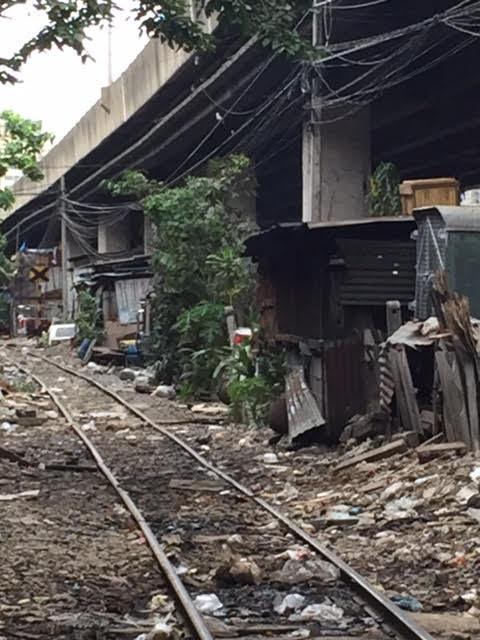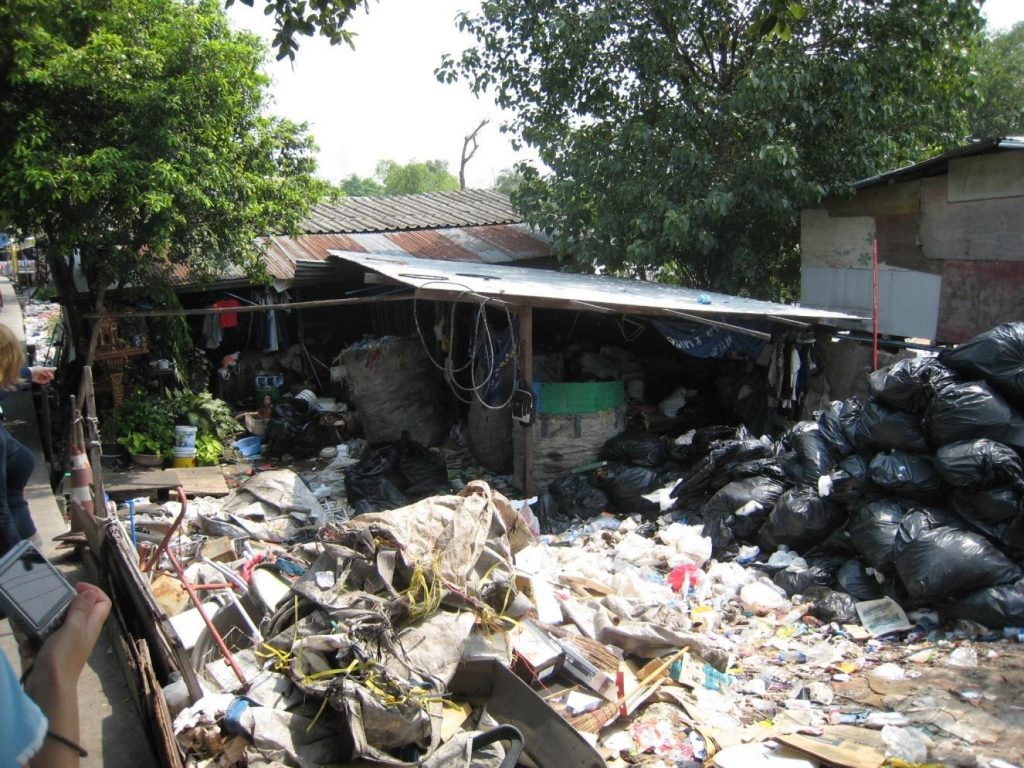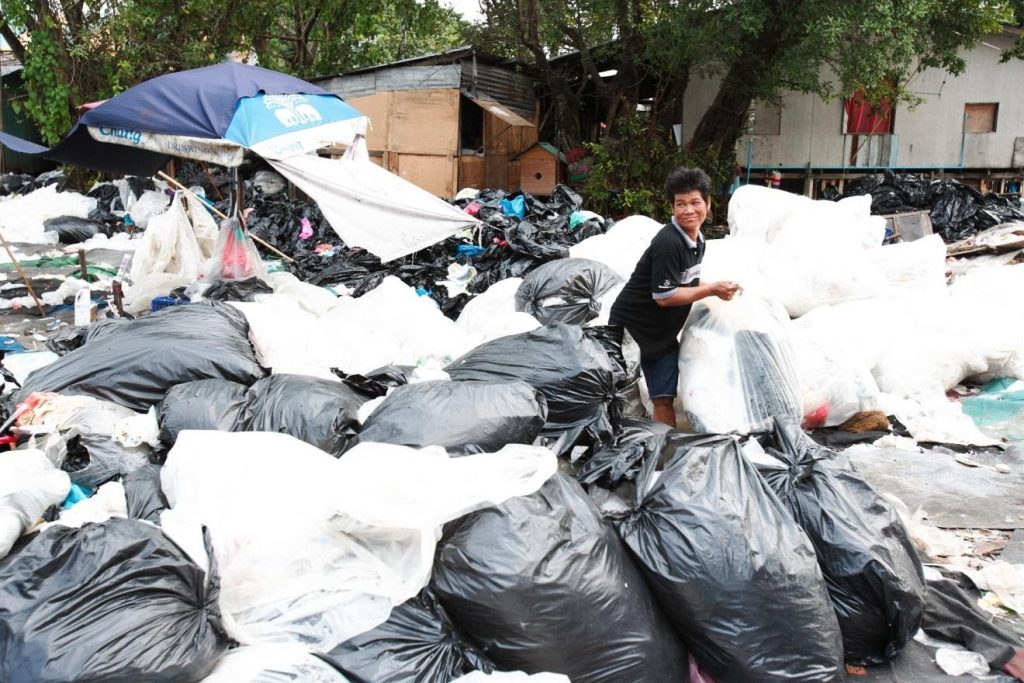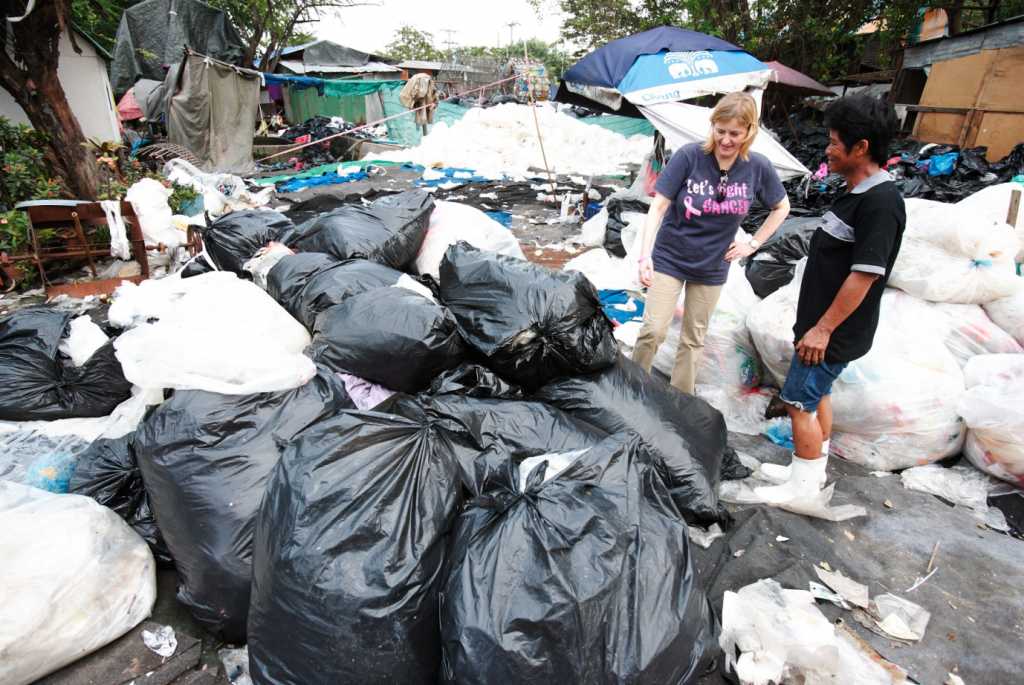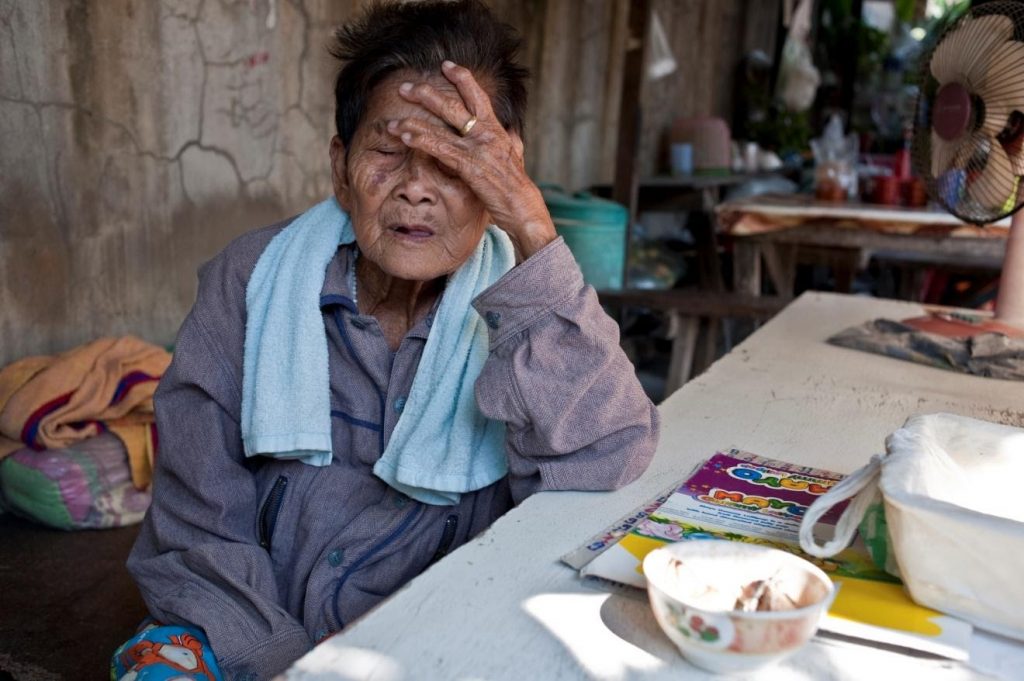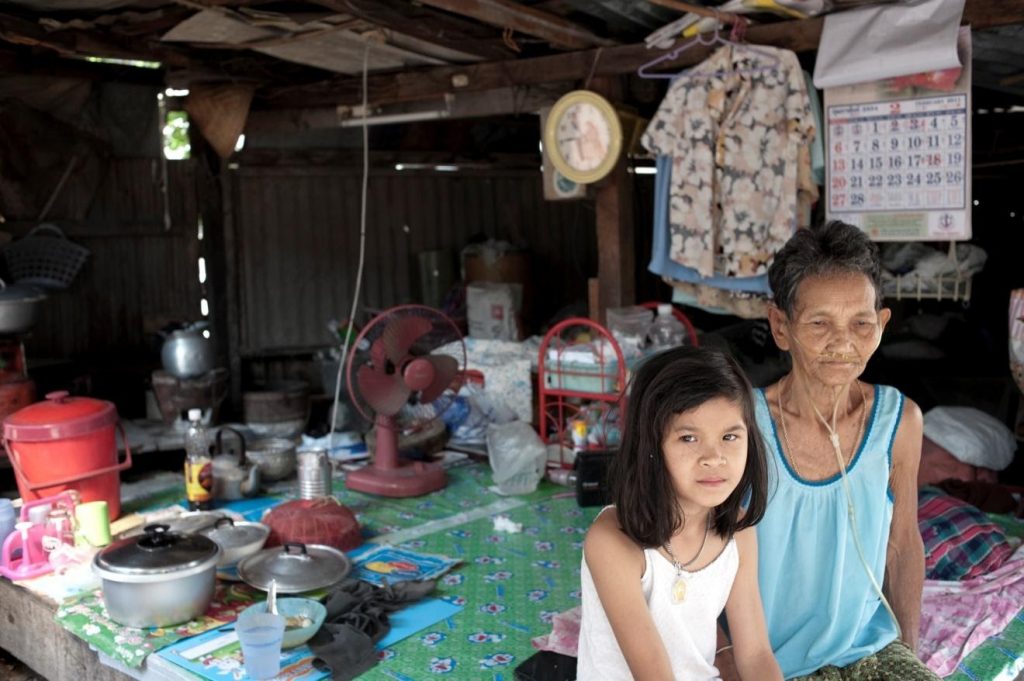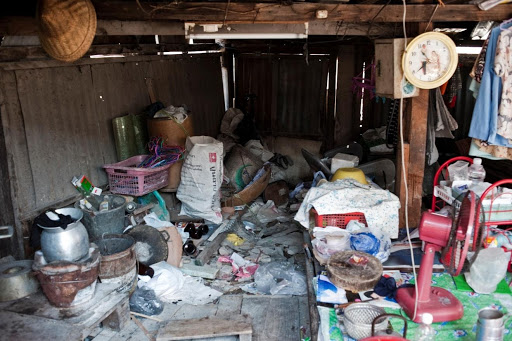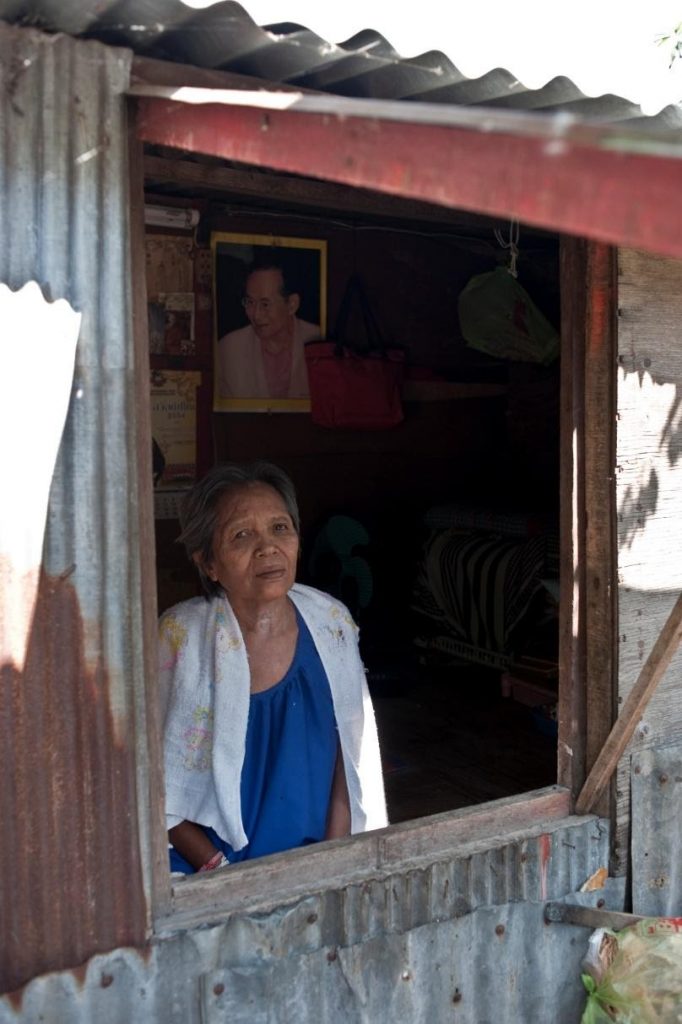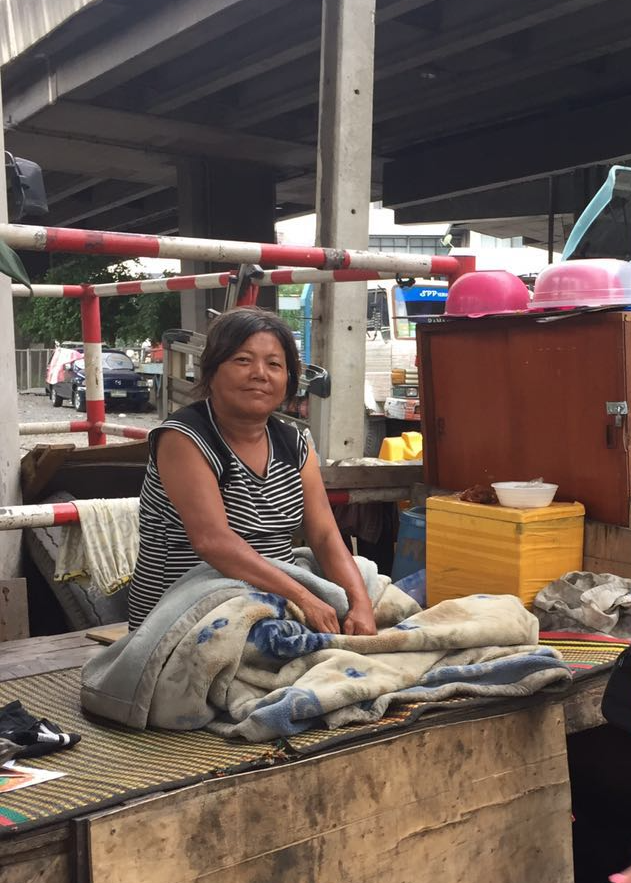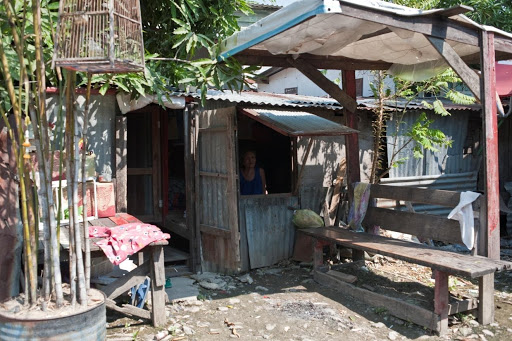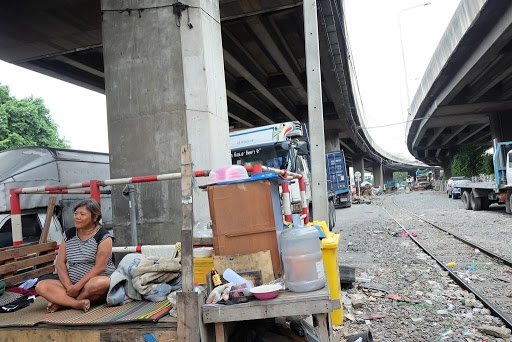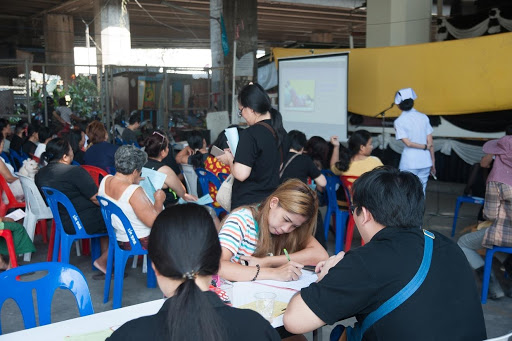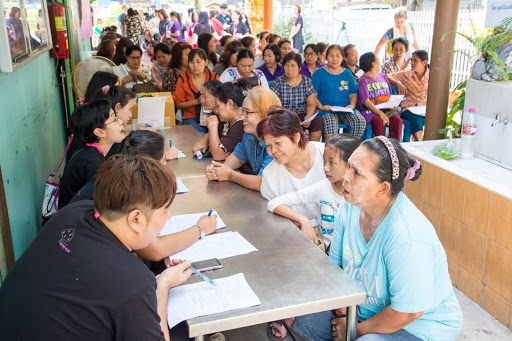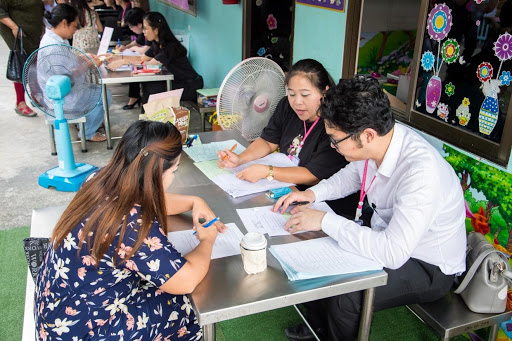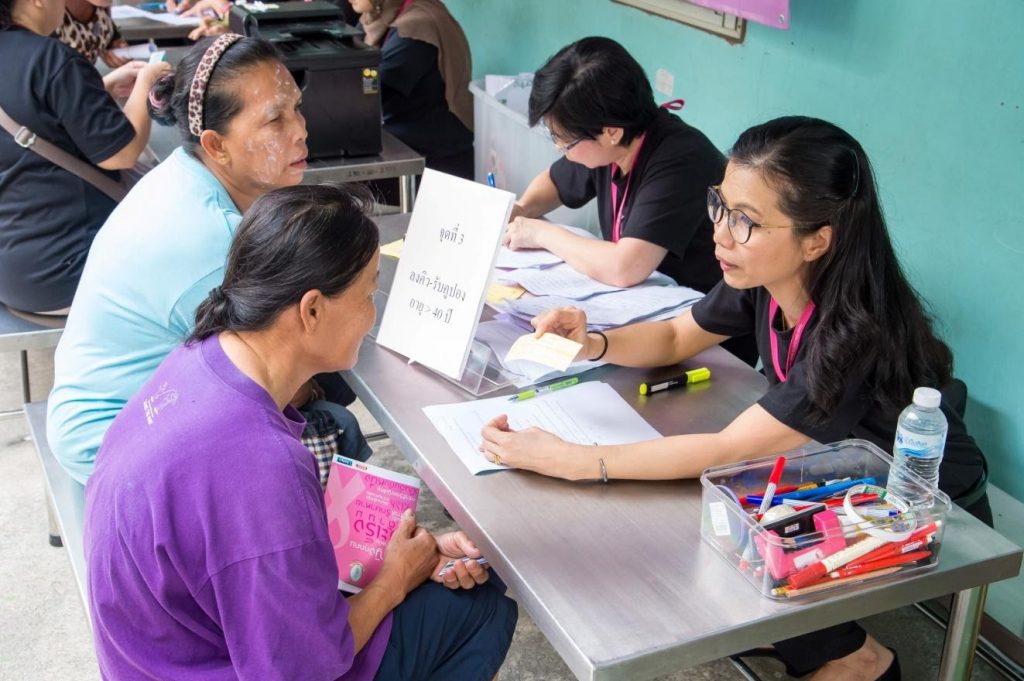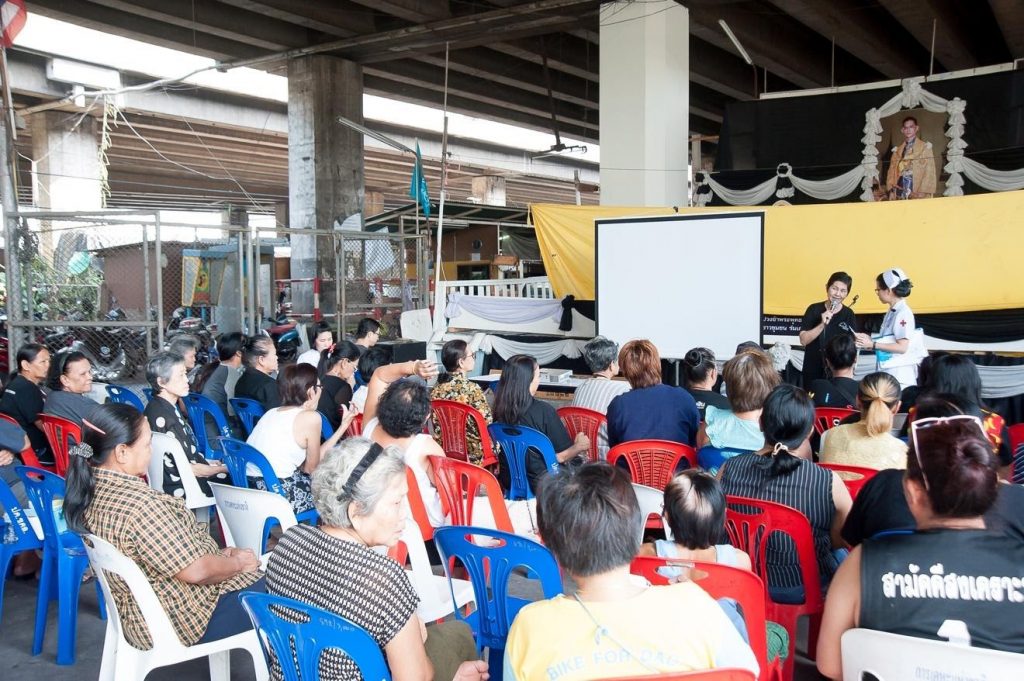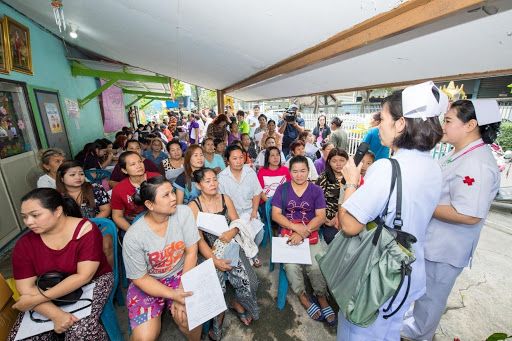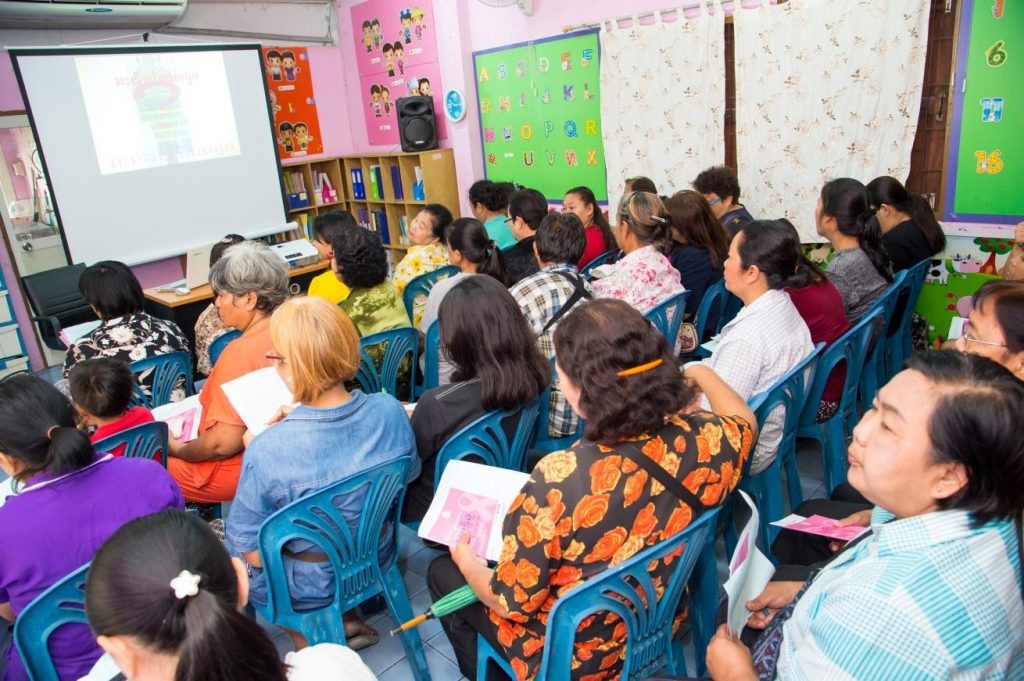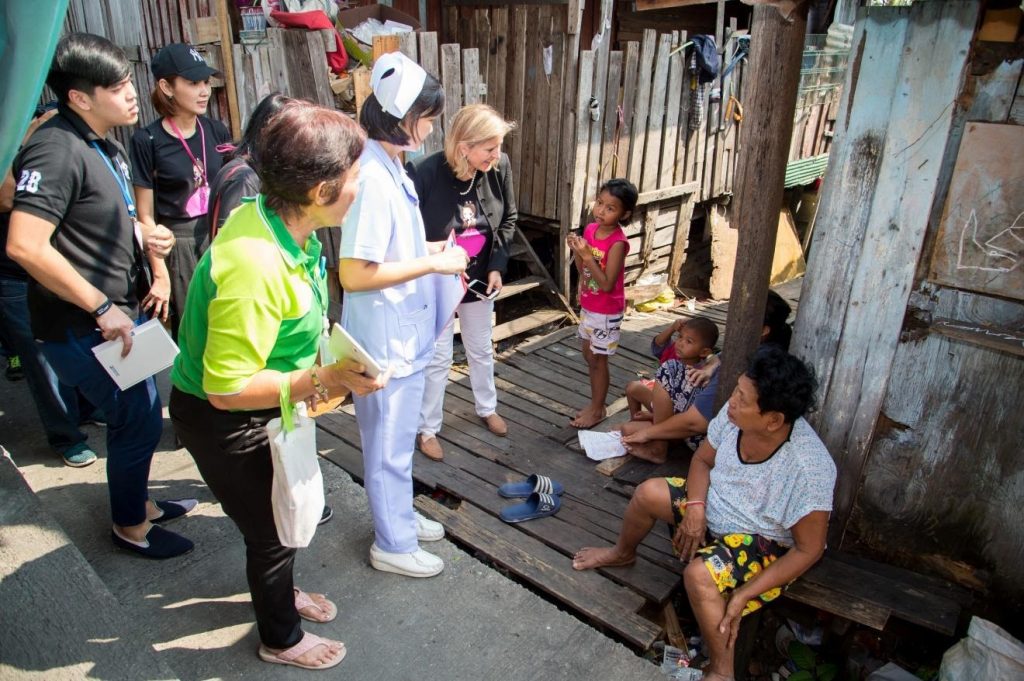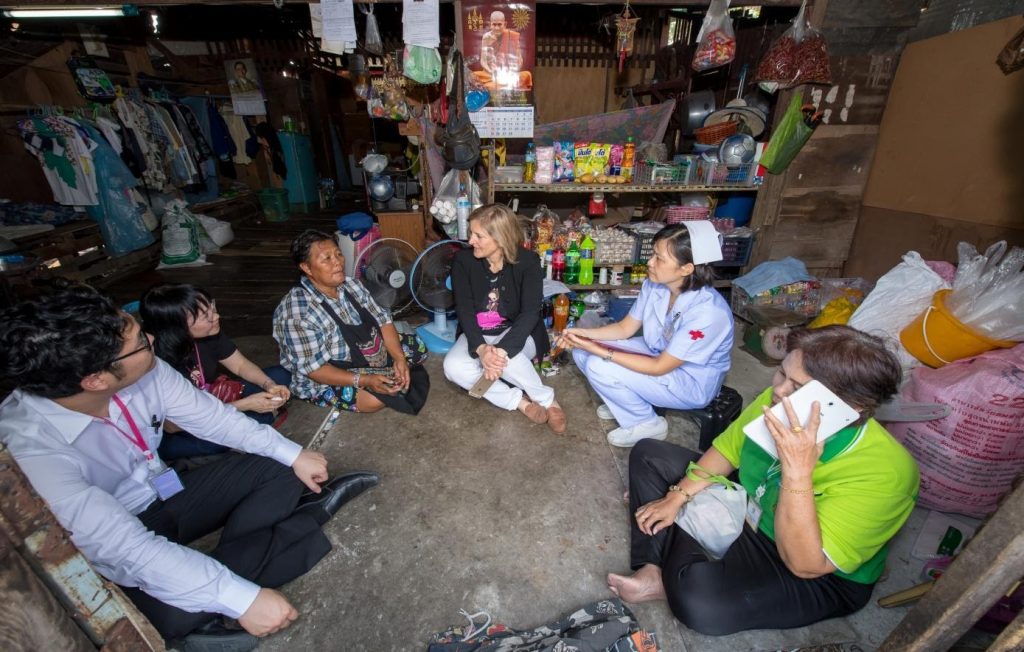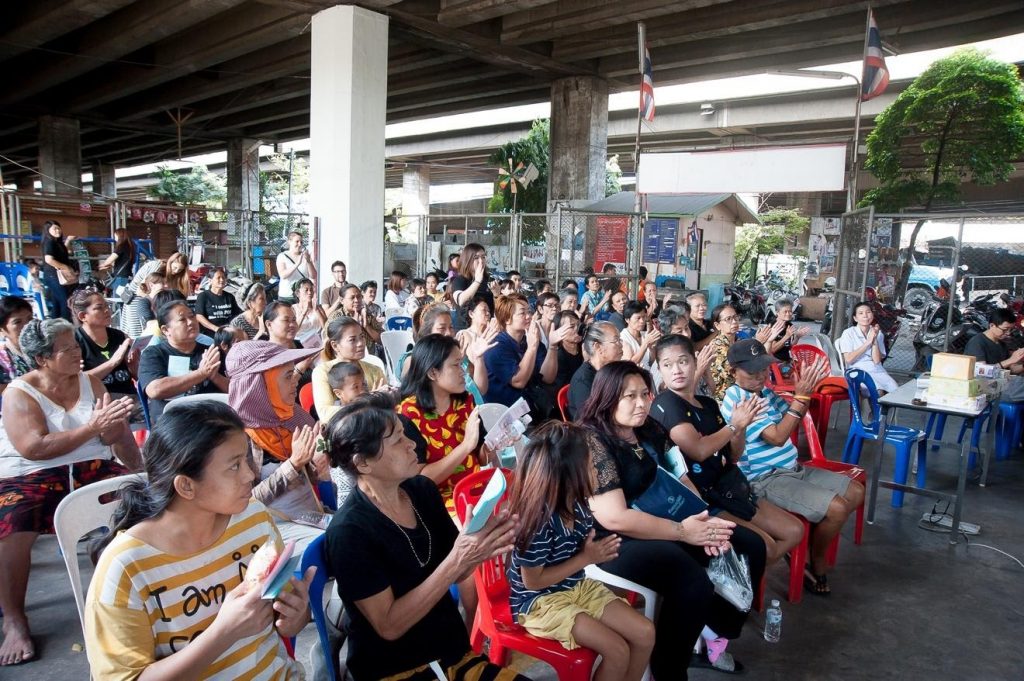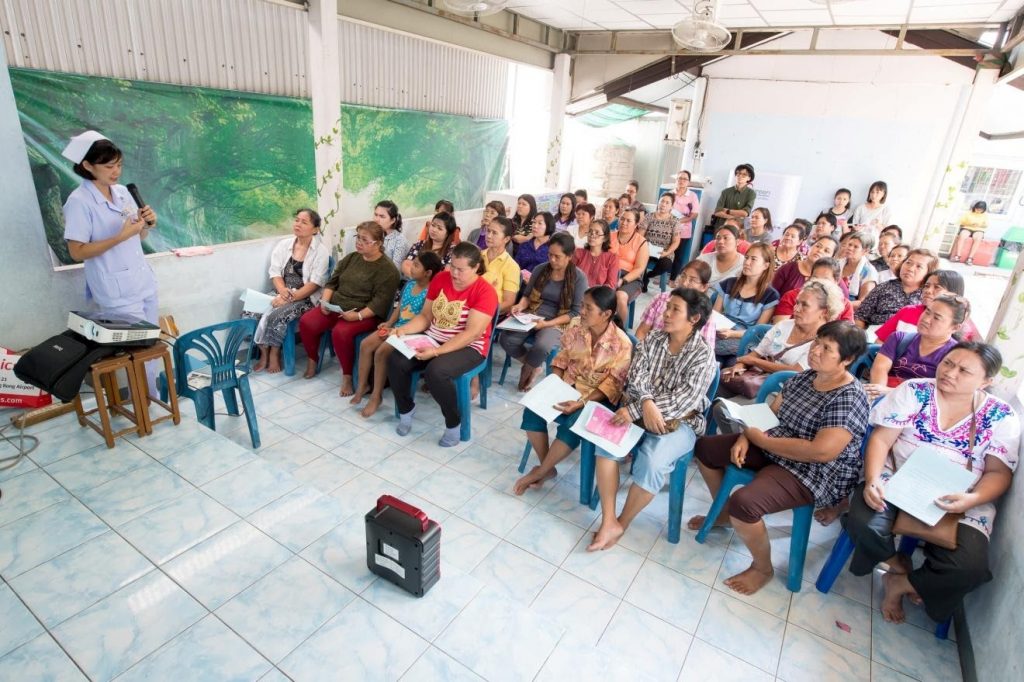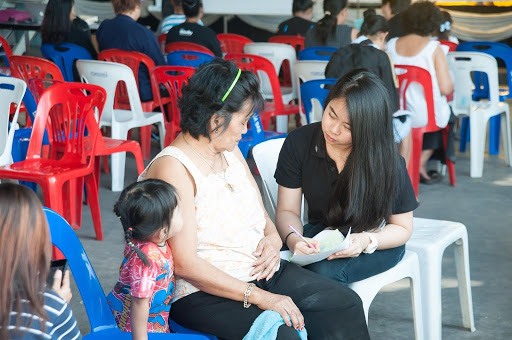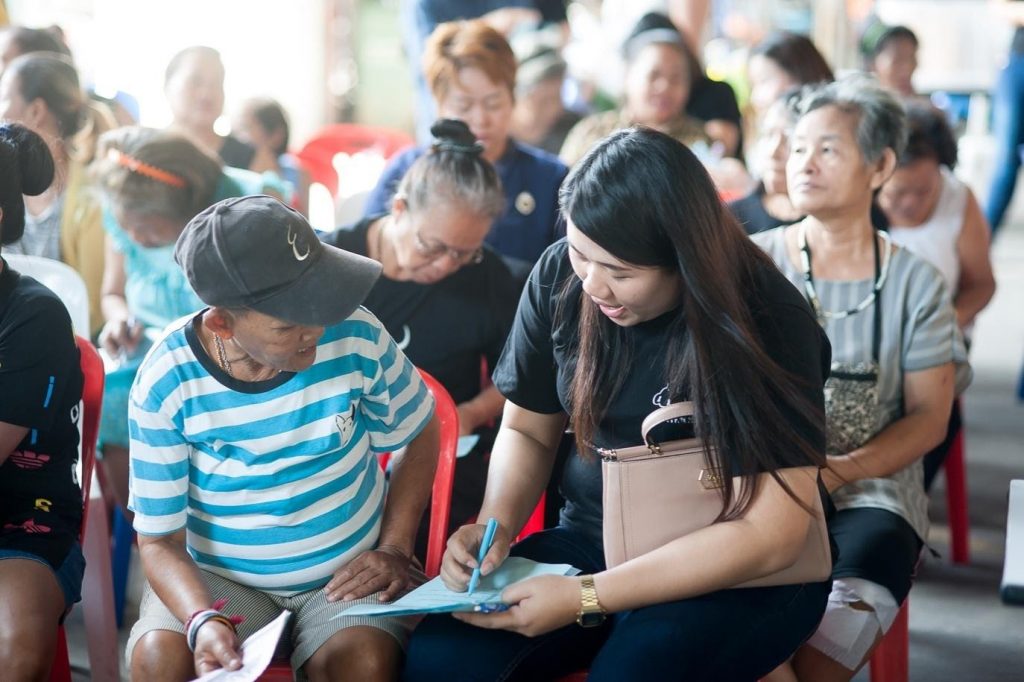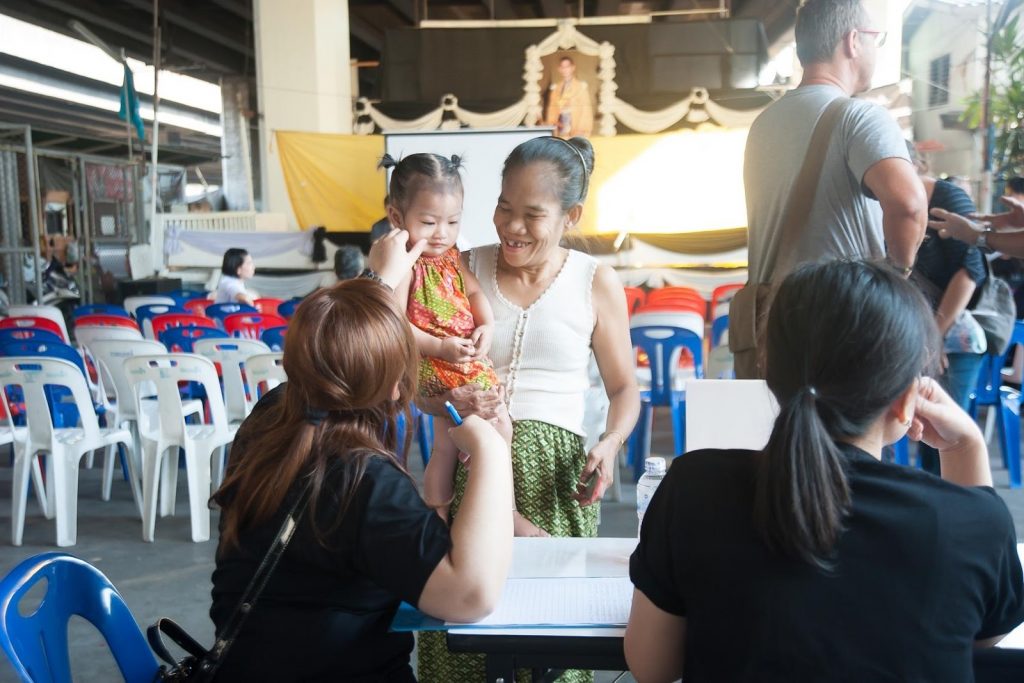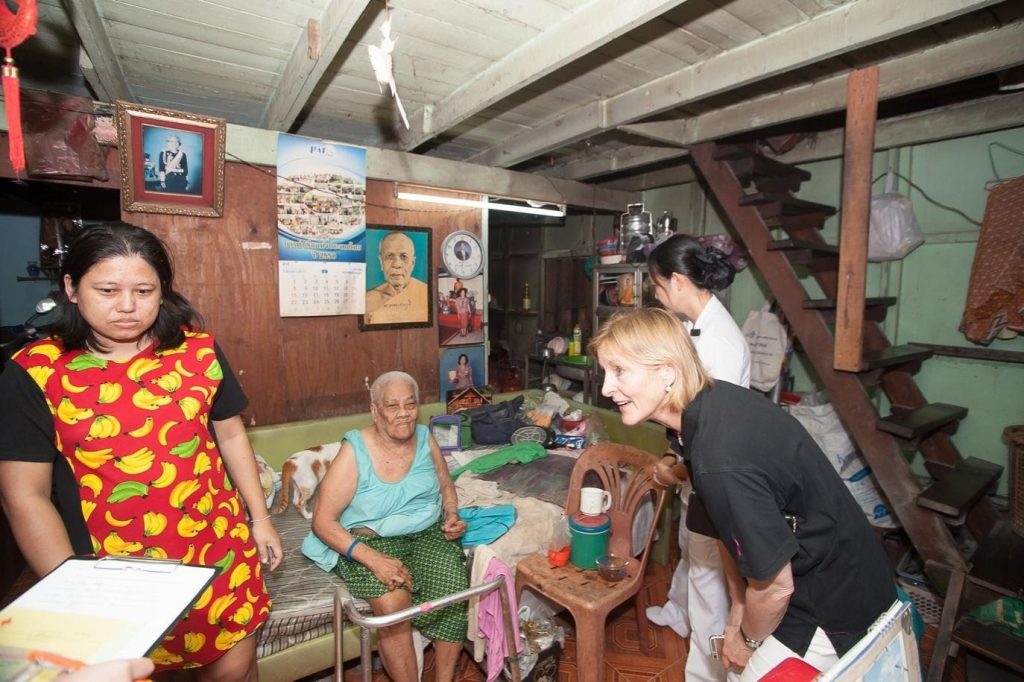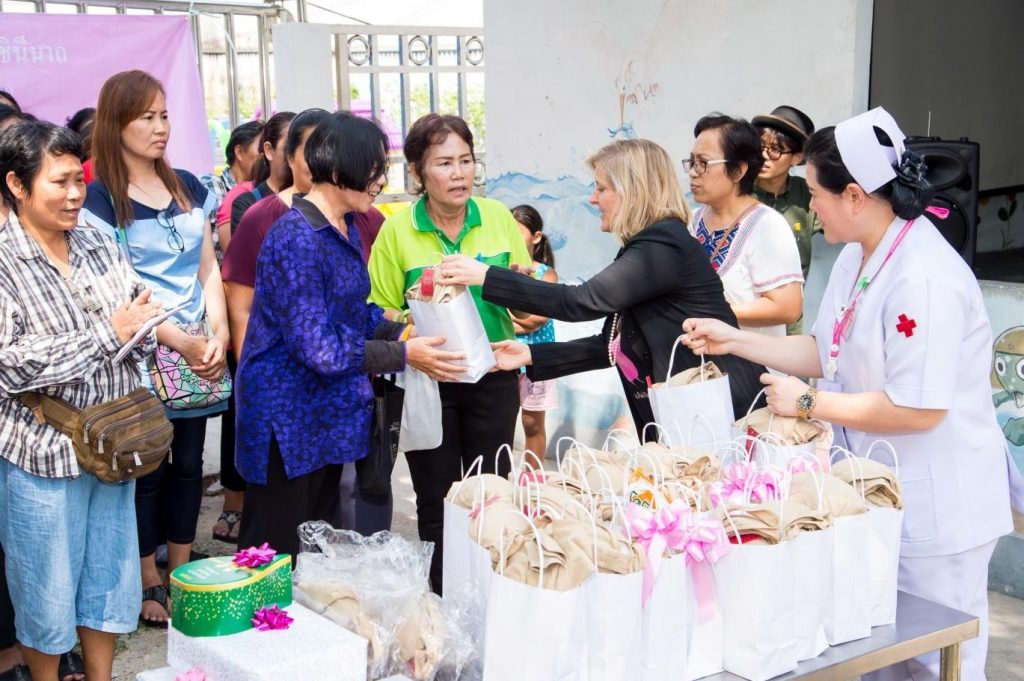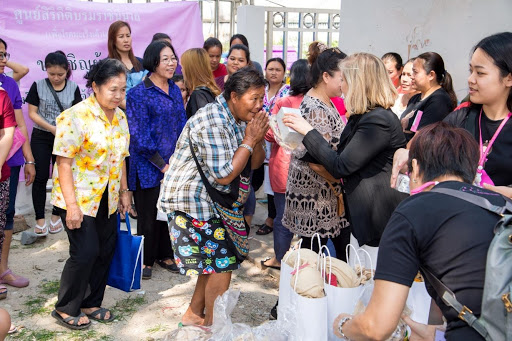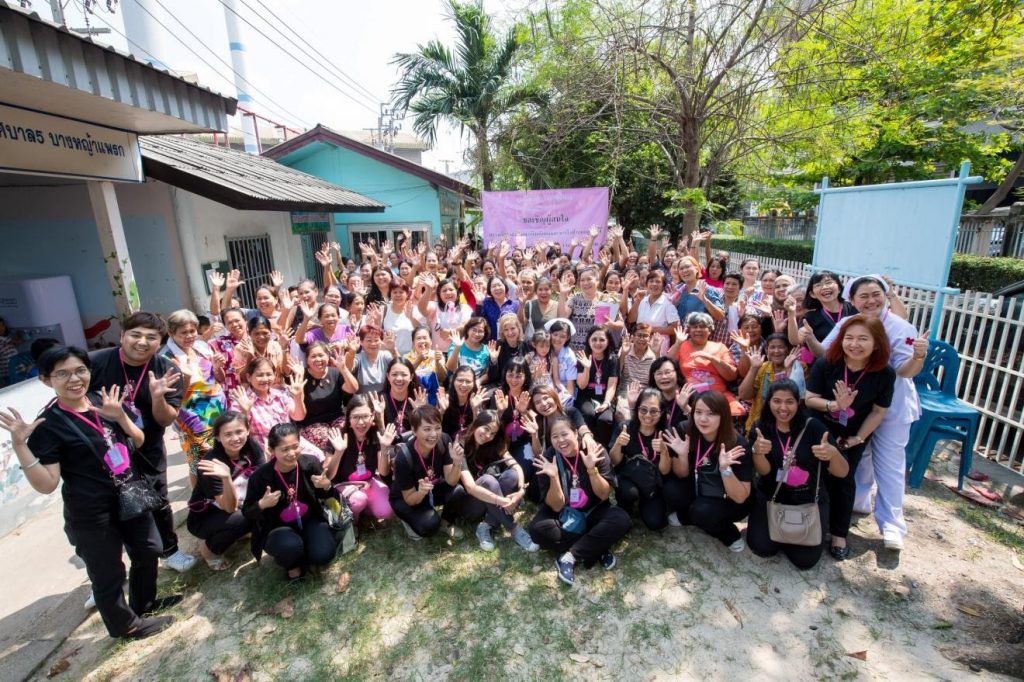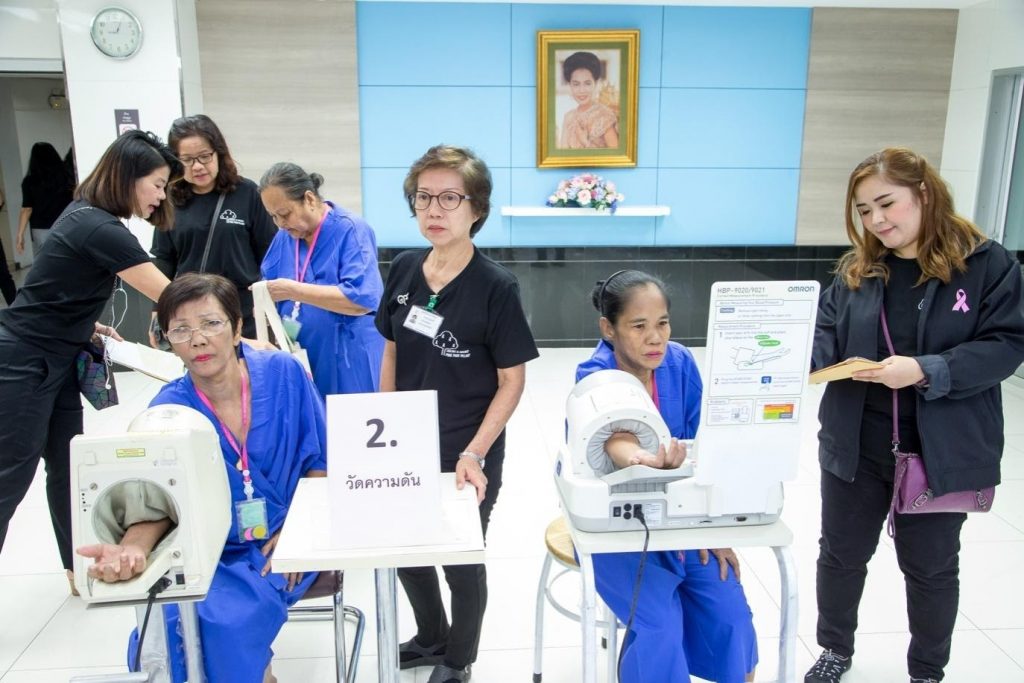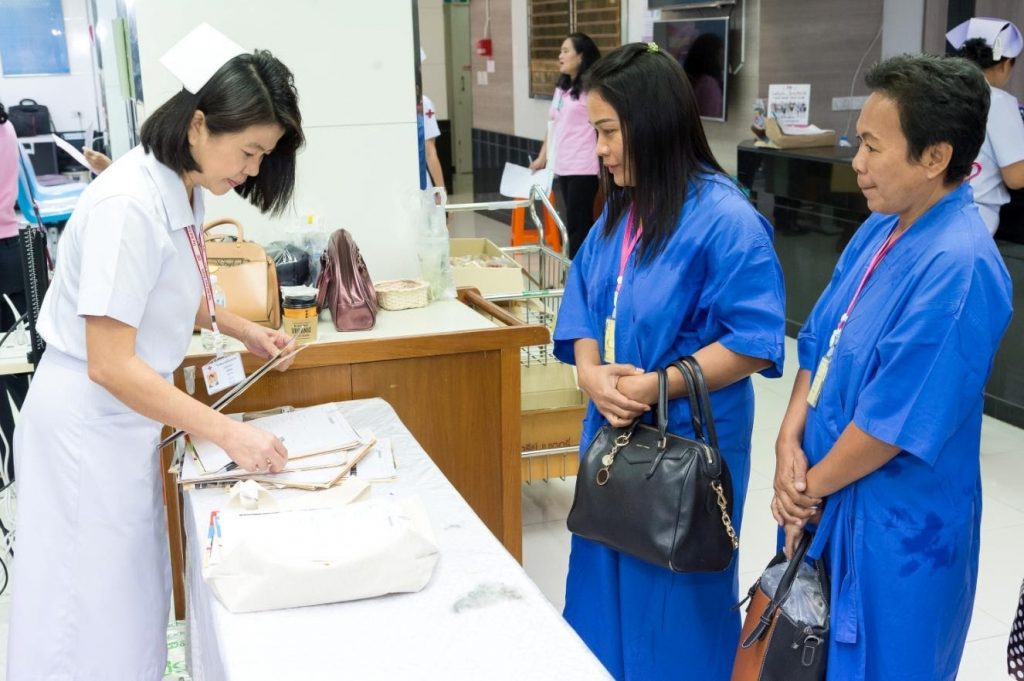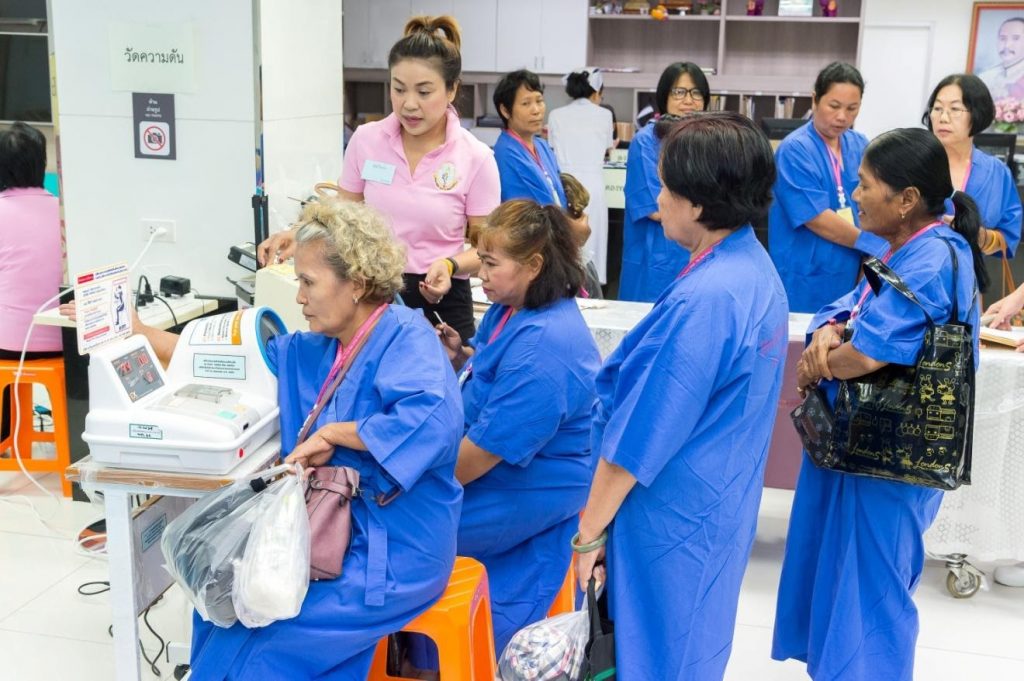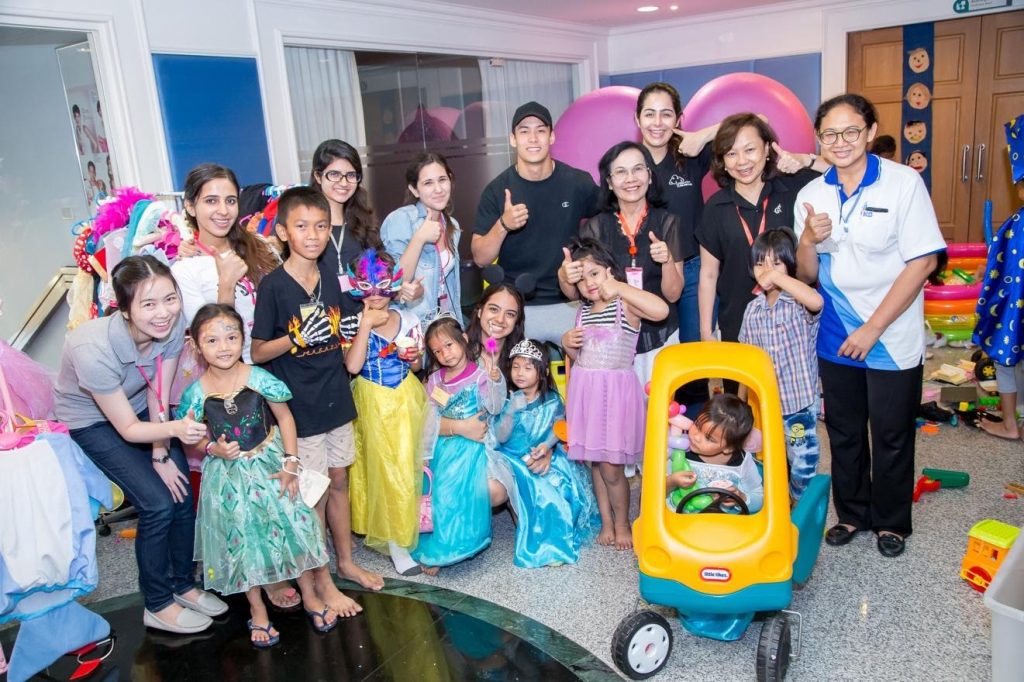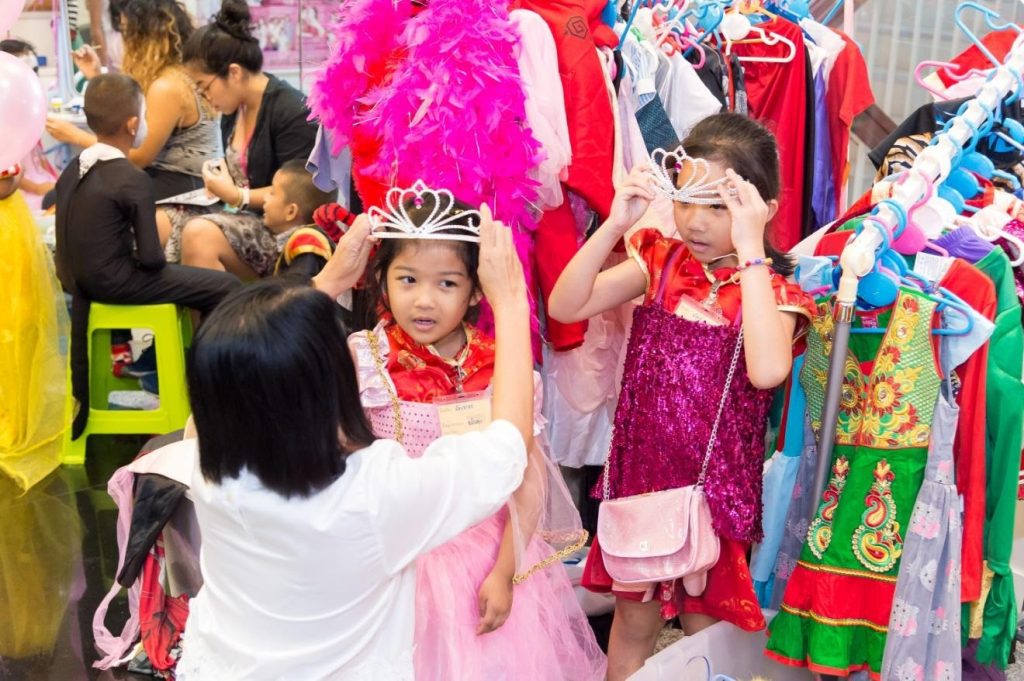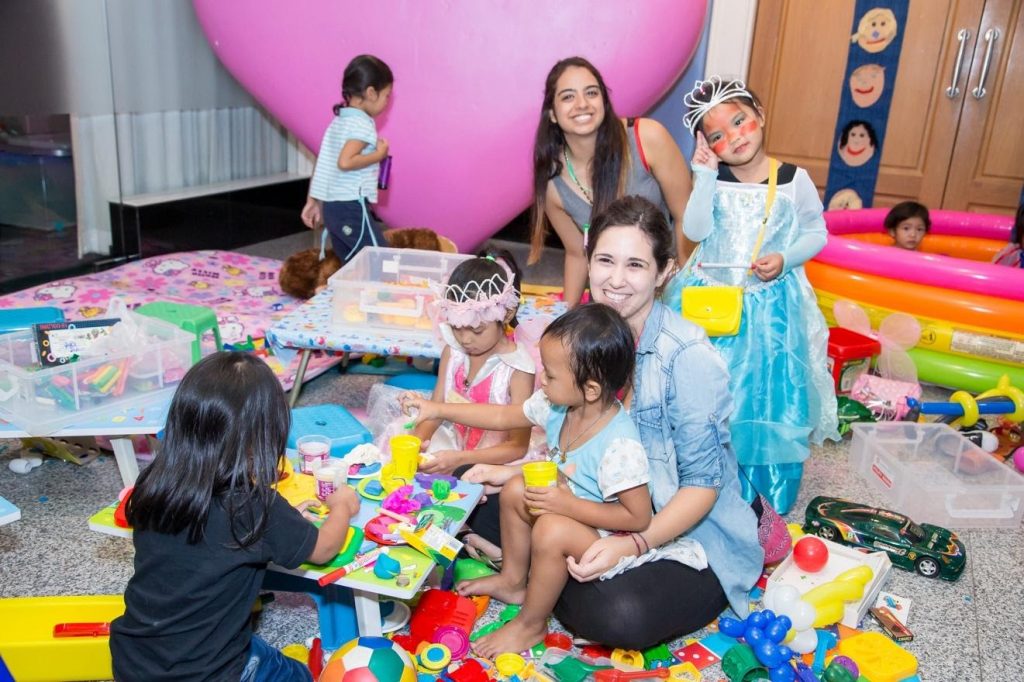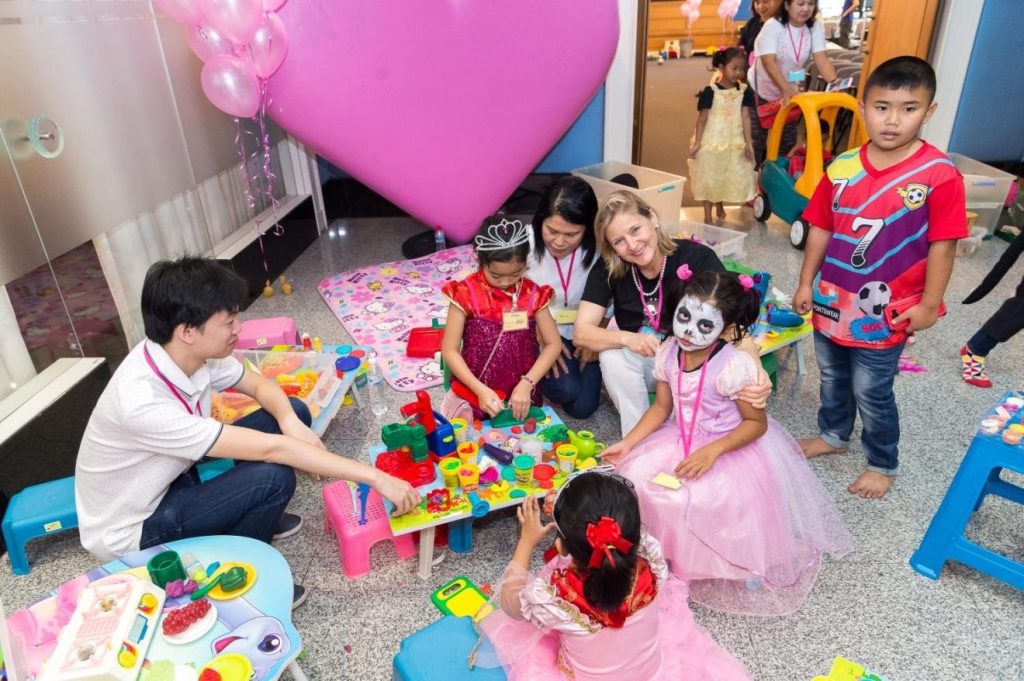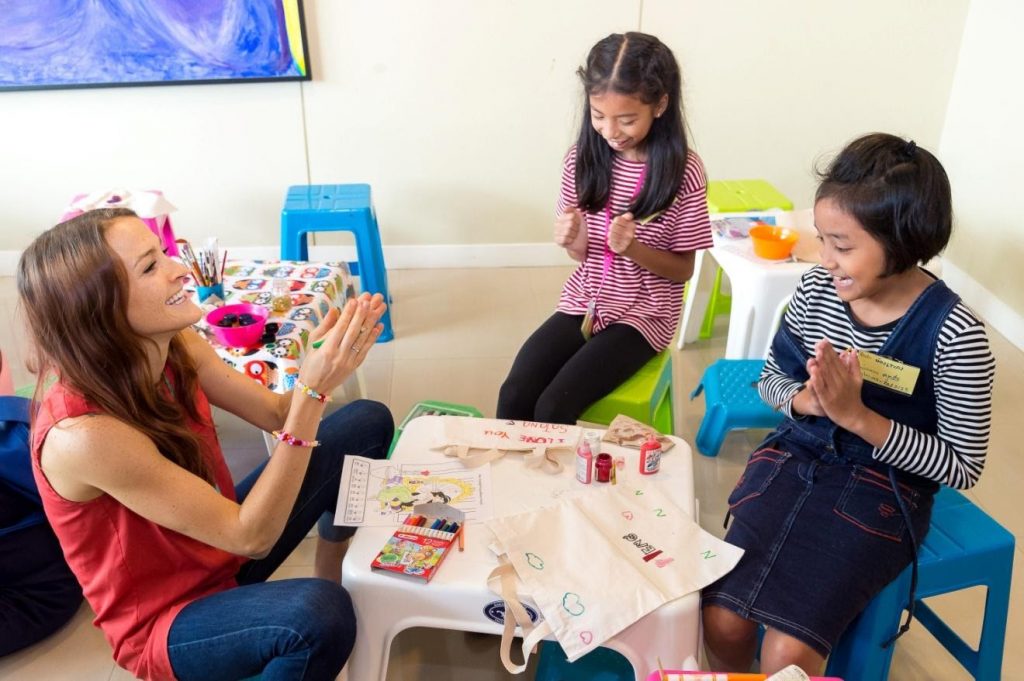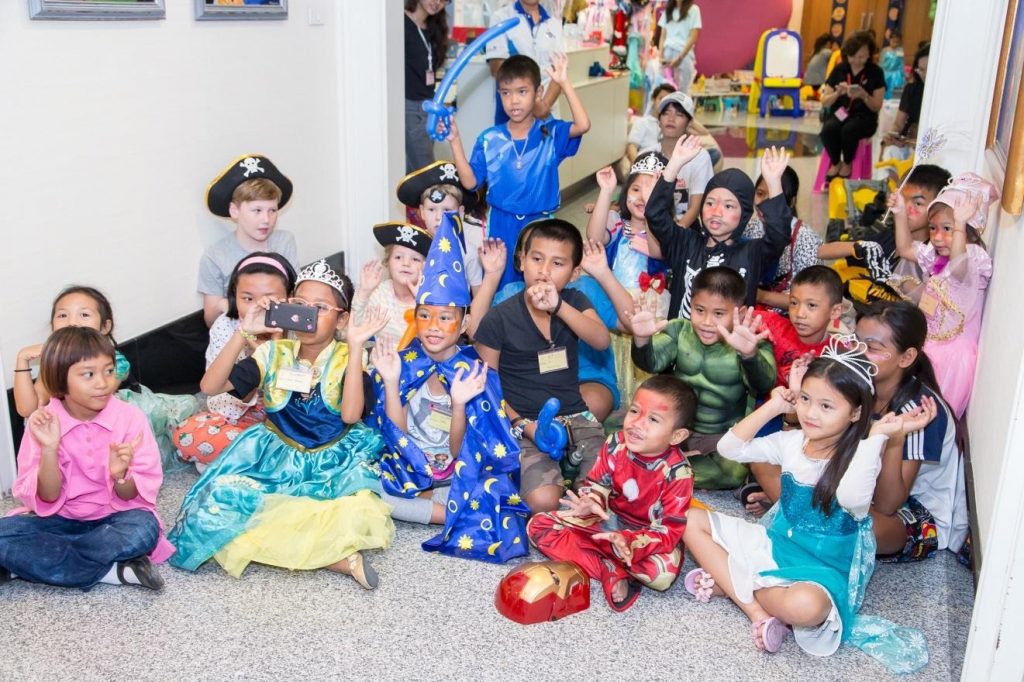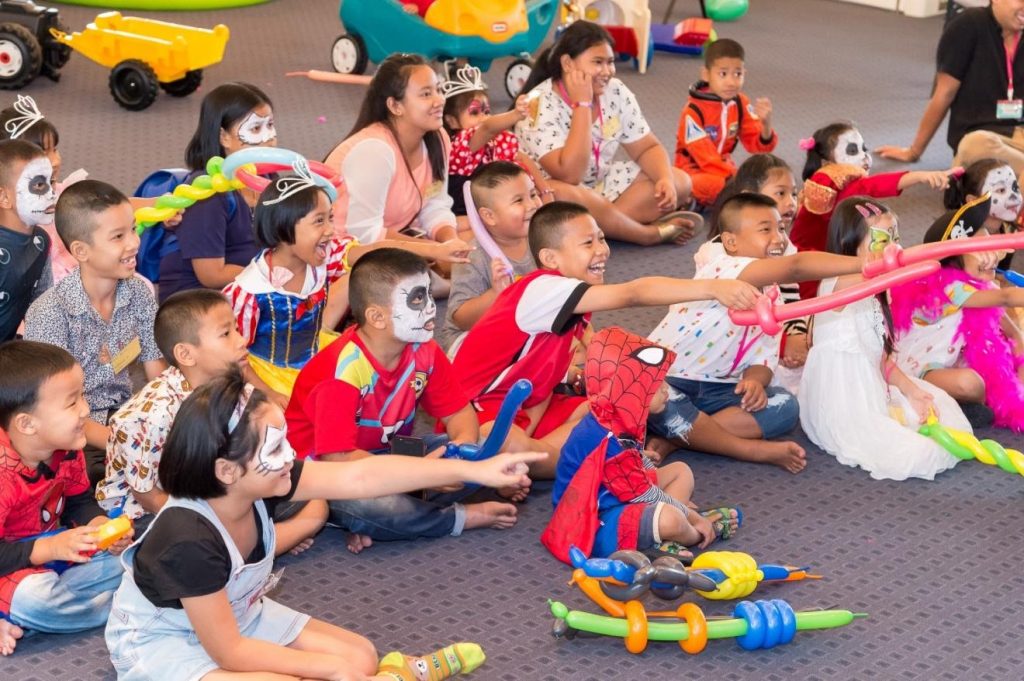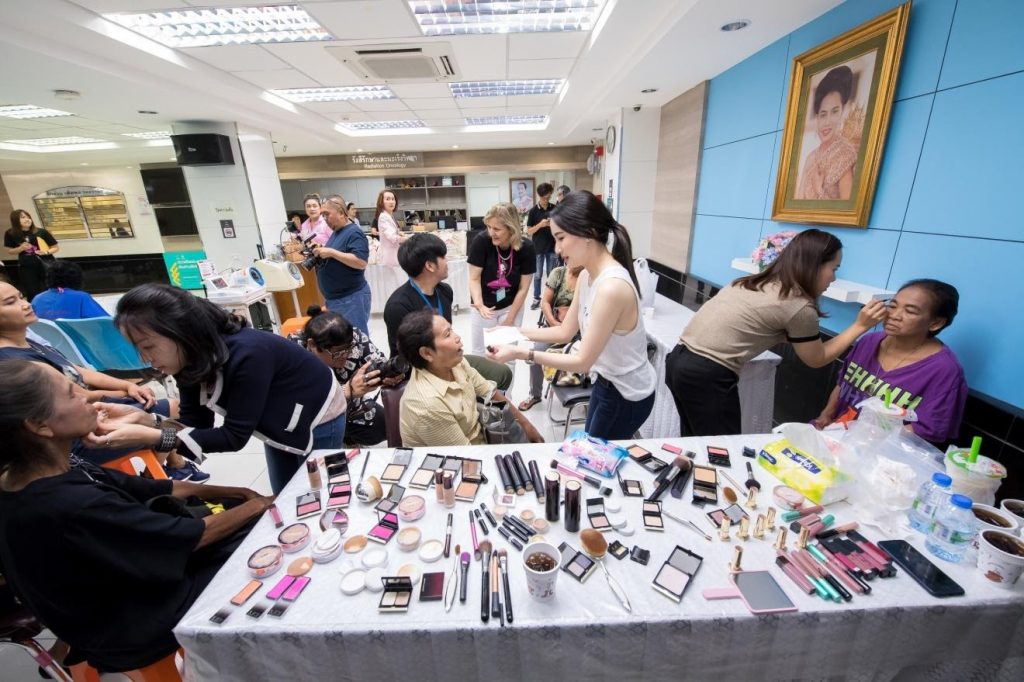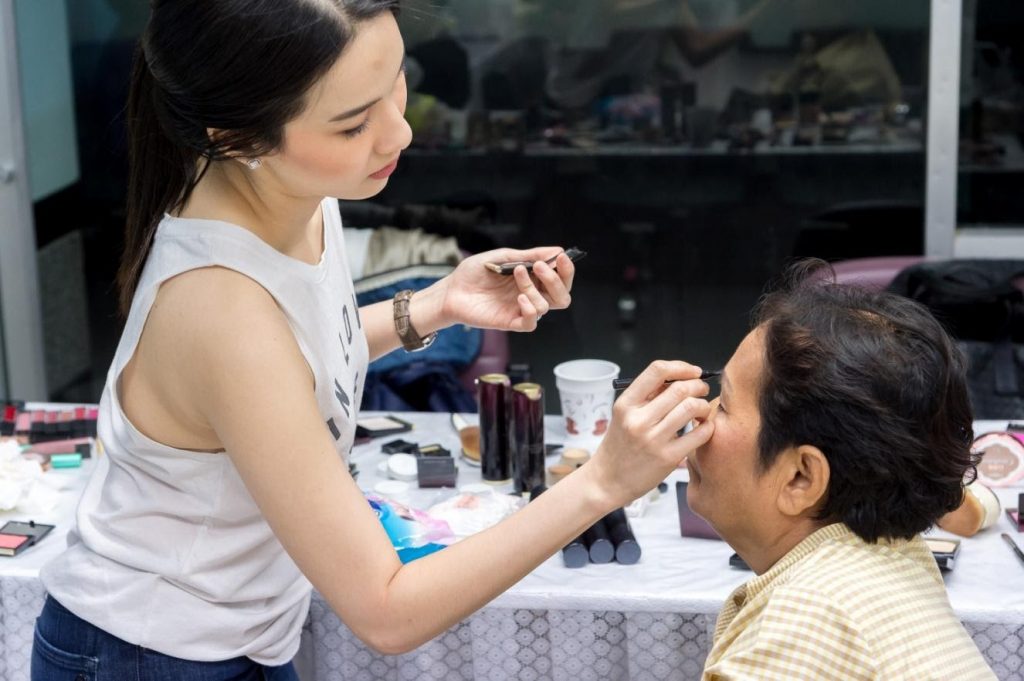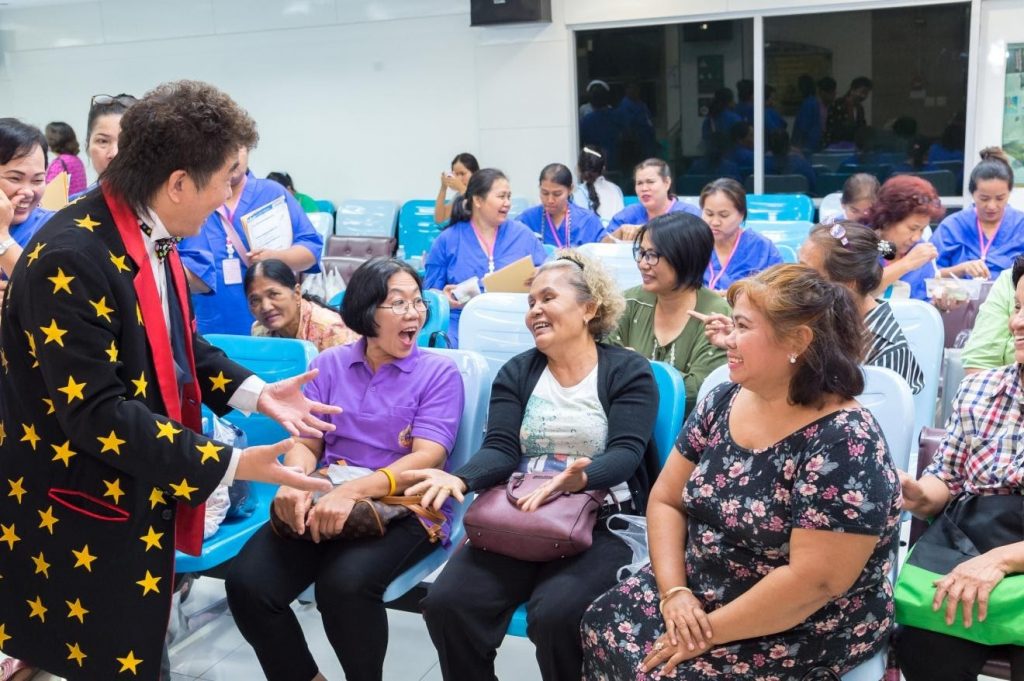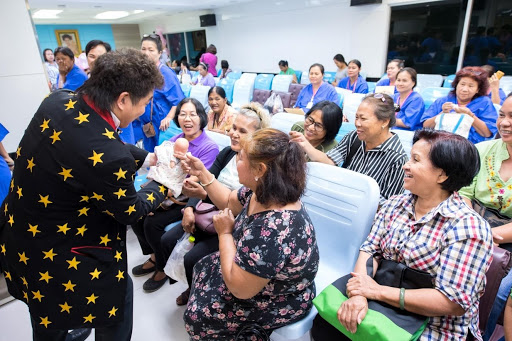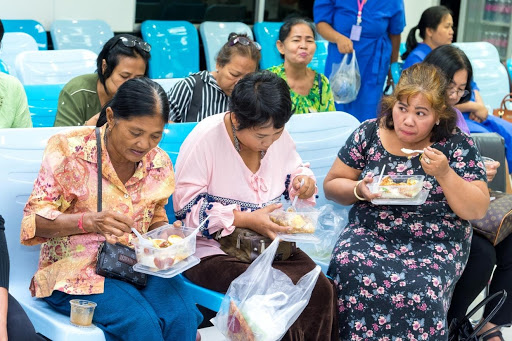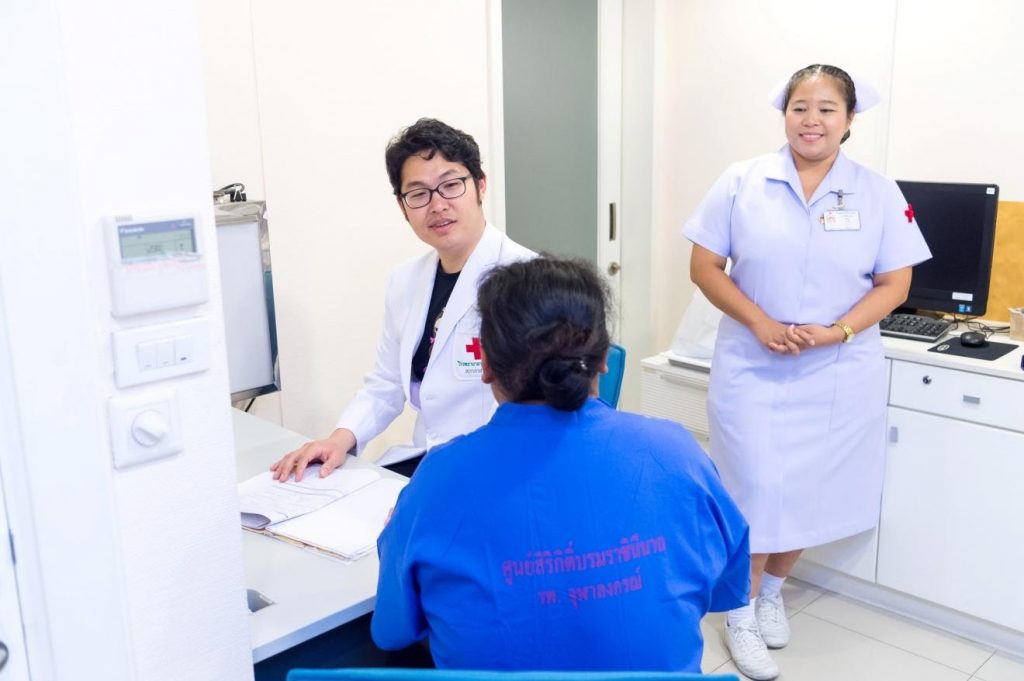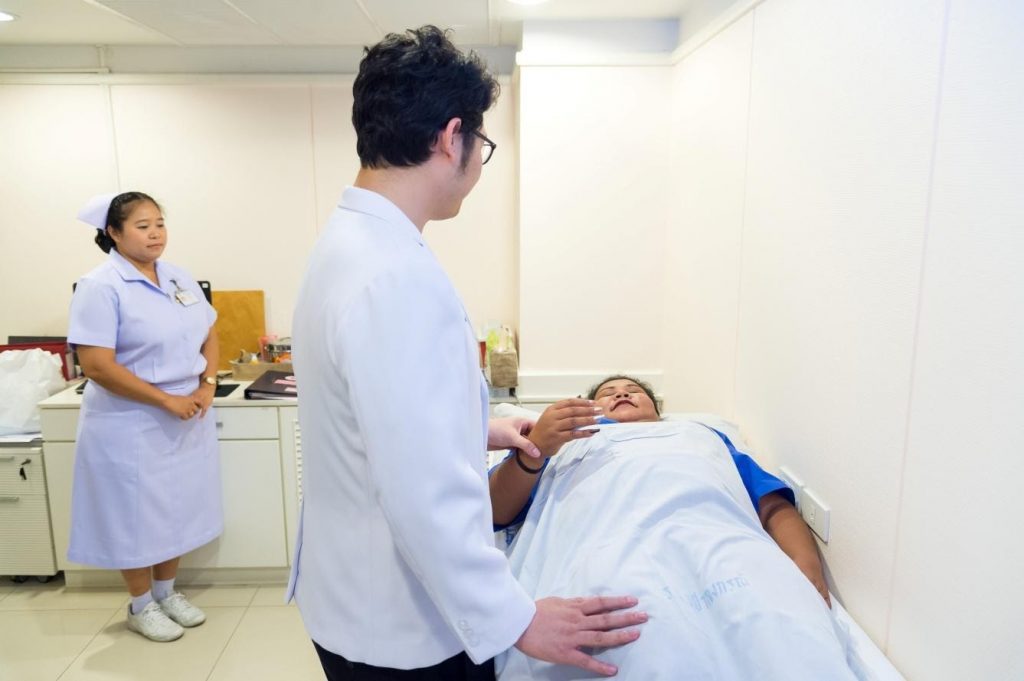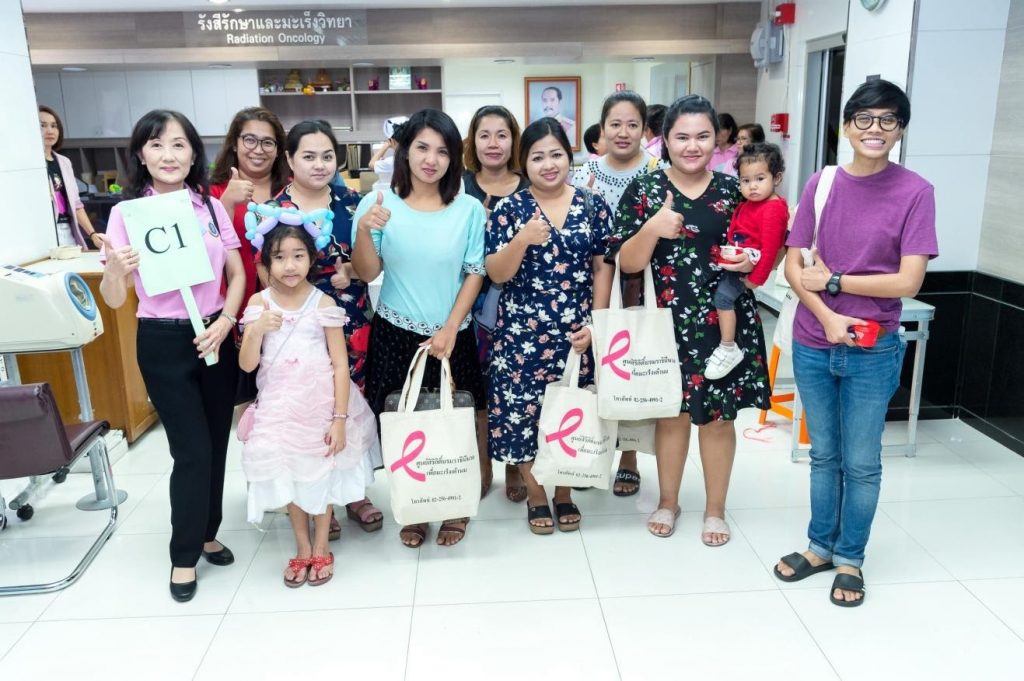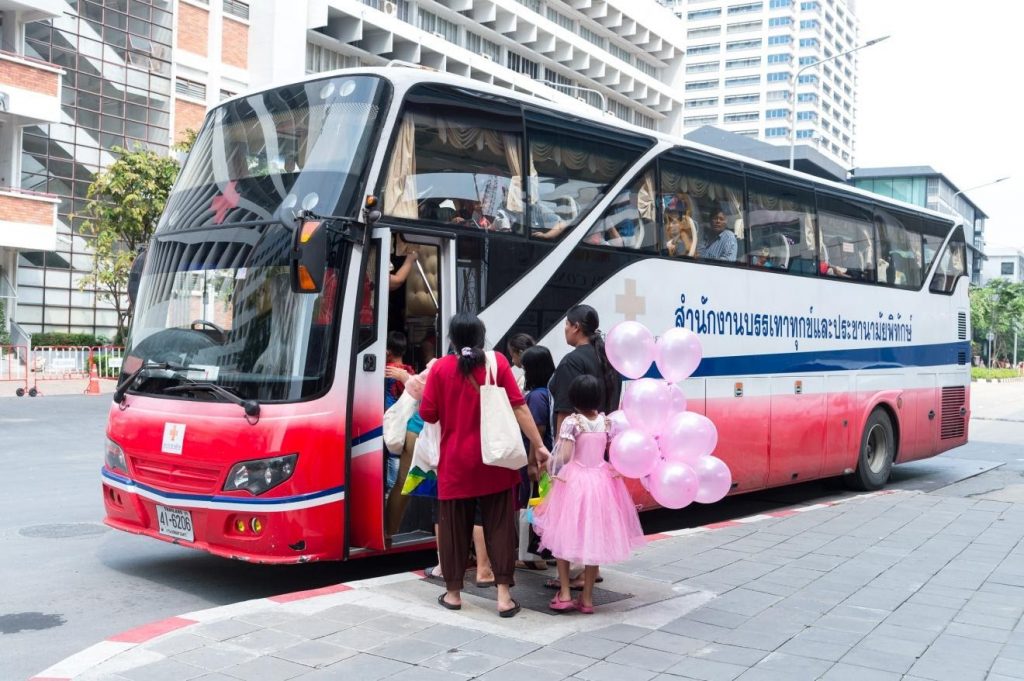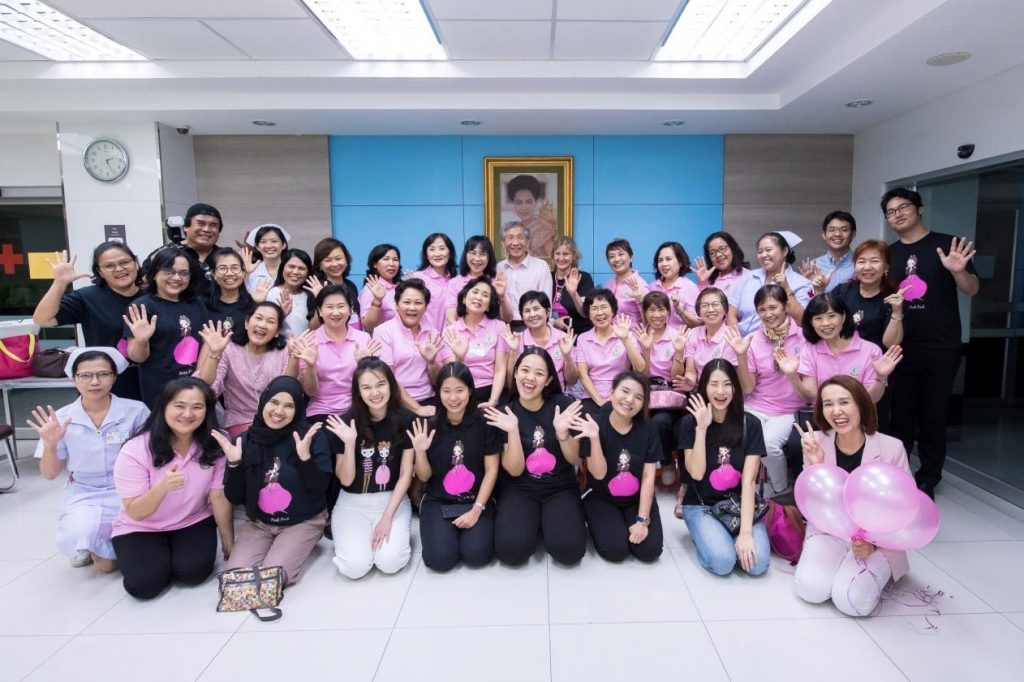The QSCBC has been operating a breast and screening outreach project in the slums of greater Bangkok for over twenty years. Many women do not have the opportunity to receive screening, because of poverty and there is a deep fear of this disease; so many women present symptoms to hospitals when it is too late. (A government scheme for treatment, but not screening, is available where a woman is originally registered, but the women seen by the project cannot afford to return back to their home province.).The project, which relies on donations, visits different slum communities, taking place over two days, every four months and out of normal QSCBC clinic hours. The QSCBC medical and nursing team visit the slum communities, registering and teaching the women about the risks of breast and cervical cancer on the first day and always working alongside an organization that is based in the community, to ensure that the candidates are genuinely in need of help. Prior to the teaching sessions the team also visits the patients’ homes to help assess eligibility of candidates and to ensure good stewardship of the donated funds, which support the project. Volunteer social workers also assist in this assessment process for the screening project. A questionnaire has been designed to assess how much the women understand about breast and cervical cancer, before the teaching session and it is given again afterwards to check that the women fully understand the information. Prizes are given to make it a fun and not a daunting activity. The youngest teenagers are very much welcomed to teaching sessions, to bring awareness of these two cancers and offer cervical pap smears, if appropriate. On the second day, the women are brought by coach to the QSCBC hospital for the full breast and cervical cancer screening.
One hundred women can be given a medical examination, breast ultrasounds and mammography, if they are forty years and over. The limit of time needed to carry out the full breast tests limits the numbers of women that can be examined in a day. Many more of the younger women can be examined, because they only require cervical examinations and pap smears which needless time to administer. Occasionally if breast symptoms are in evidence, breast screening will be offered in case further investigation is needed. All the women receive cervical pap smears, bone density and other basic health checks.
The project takes place on weekends, when the women are more available to attend. Alongside the nursing and medical team, the volunteer social workers and patient support groups for breast cancer started by Dr. Kris Chatamra, are also active helpers of the project. The women are encouraged to bring their children and a team of volunteers, to organize play activities, while the women receive their medical screening and enjoy their own fun activities. Childcare provision is always a major concern for the women and the children’s activities, during these screening sessions allow the women to attend.
All the funds are raised for the breast and cervical screening with support from many organizations and individuals. As many of the women live an almost subsistence existence, food and drinks are given throughout the day and taken home, to alleviate the worry of feeding their families. Professional beauticians also volunteer their services to offer the women ‘cosmetic makeovers’ while they wait to be examined, if they wish to do so. Despite the medical tests, the aim is to create a fun and positive atmosphere, which will have the additional benefit of encouraging the women to tell their neighbours to join the project in the future. Breast cancer for many women in these communities has always equated with a death sentence, with so many of the women not having access to screening and diagnosis in time. Many of the women hide their tumours out of fear. According to Sister Joan Evans, who lived and worked in the slums of Klong Toey, Bangkok for 30 years, “before the QSCBC and foundation project was started twenty years ago, I could only give a woman in her final hours, a bottle of rum to ease the agony of their untreated cancer”. The screening project is key to offering these women a chance at early detection of cancer and treating the cases which are diagnosed. Pink Park hospice and convalescence home, being built by the QSCBC and Foundation, is desperately needed to serve these very poor patients.

